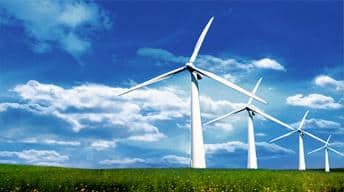- Hotline+971 50 27 28 29 1
- for Individual offices click here


STA Law Firm has a team of settlement experts to represent secured creditors, debtors, trustees, equity holders and suppliers....
Read more information
Corporate Law Firm in UAE-& across MENA. Corporate Lawyers in Dubai...
Read more information
STA Law firm has a dedicated team of franchise lawyers who advises and counsels the franchise arrangements, structuring franchise programs, franchise network and distribution. ...
Read more information
STA - Expert Team of Commercial & Contracts Lawyers in Dubai & UAE...
Read more information
STA Law Firm is one of the leading law firm in Banking and Finance, Capital Markets, DIFC, Compliance and Regulatory practices. ...
Read more information
Contact our expert team of property lawyers in Dubai & across UAE....
Read more information
STA Law Firm's team of employment lawyers in Dubai, Abu Dhabi and across UAE advise universities, engineering & shipping firms, banks, & other industries...
Read more information
Intellectual Property Law Firm. Patent, Trademark Registration UAE...
Read more information
Technology & Media Law Firm in Dubai - Expert Lawyers...
Read more information
STA has a dedicated team of fraud & criminal lawyers in Dubai & UAE...
Read more information
Shipping Law Firm in Dubai | Offices - Middle East, Asia & Europe....
Read more information
Mergers and Acquisitions Law Firm in Dubai and United Arab Emirates...
Read more information
In today’s competitive business environment the mining industry is becoming a very attractive option for foreign investors. New projects are being launched, but we can appreciate that foreign investors will find the mining industry......
Read more information
STA lawyers recognize that the healthcare industry comprises of a variety of individuals, professions, teams and organisations that may need our legal services. We have considerable knowledge and experience......
Read more information
Clients rely on and trust STA's banking lawyers to take a timely, practical and individually tailored approach to meet specific requirements of our clients. ...
Read more information
Insurance Practice at STA - Expert Insurance Lawyers in Dubai & UAE...
Read more information
STA is a leading technology and media law firm in Dubai & across UAE...
Read more information
Hospitality Lawyers in UAE - Expert Advice to Hospitality Industry...
Read more information
STA’s seasoned team of property lawyers in Dubai, Abu Dhabi and across the UAE have thorough and extensive knowledge and experience in dealing with construction and real estate law matters. Learn more about our expertise and our team of property lawyers...
Read more information
STA's lawyers in UAE specialize in all areas of contentious as well as non-contentious discipline in oil and gas industry and advice on both upstream and downstream work. Consult one of our Senior Energy Lawyers in Dubai or other offices today!...
Read more information
Combining variety of practice disciplines to provide extensive advice and counsel to clients, STA’s FMCG practice represents companies in a broad range of industries including large scale franchisors, Fortune 250, and multinationals ...
Read more information
Shipping and Maritime Law Firm - UAE, Middle East, Asia and Europe. Expert advice on ship building, ship fiance, sale and purchase, compliance, due diligence and more. Our lawyers advice on all types of vessel including bulk carriers, tankers, cruise ships, offshore rigs and support vessels....
Read more informationSTA's Team of Lawyers in Abu Dhabi, Bahrain, Doha, UAE, Luxembourg, Moscow, RAK, Sharjah, and Singapore. Find a Lawyer. ..
Read more informationUAE to Submit New National Climate Plan Ahead of COP29
 The United Arab Emirates (UAE) is set to release its updated Nationally Determined Contribution (NDC) under the Paris Agreement before the COP29 climate summit in November. This move makes the UAE one of the first major emitters to submit its climate strategy ahead of the February 2025 deadline, signaling its commitment to addressing climate change. The new NDC will outline how the country plans to reduce its greenhouse gas emissions between 2025 and 2035.
The United Arab Emirates (UAE) is set to release its updated Nationally Determined Contribution (NDC) under the Paris Agreement before the COP29 climate summit in November. This move makes the UAE one of the first major emitters to submit its climate strategy ahead of the February 2025 deadline, signaling its commitment to addressing climate change. The new NDC will outline how the country plans to reduce its greenhouse gas emissions between 2025 and 2035.
NDCs are central to the Paris Agreement, requiring nations to periodically update their climate targets every five years. These plans are crucial for maintaining the global trajectory toward achieving net zero emissions by 2050 and limiting global temperature increases to 1.5°C. The UAE’s decision to release its updated NDC aims to encourage other countries to follow suit by presenting more ambitious emission reduction targets.
The announcement comes amid increased global pressure to transition away from fossil fuels, a key point of contention in previous climate negotiations. The upcoming NDC round is viewed as the first significant test of commitments made during COP28 to reduce fossil fuel reliance. As part of the international climate framework, the updated NDCs are expected to address emissions from oil, gas, and coal, sectors that were notably absent from earlier country submissions.
In light of these developments, advocacy groups have raised concerns about projected increases in oil and gas production by major fossil fuel producers, including the UAE. Some reports indicate that the combined output of past, current, and future COP hosts could rise by 33% by 2035. The effectiveness of the Paris Agreement hinges on countries aligning their NDCs with the overarching goal of reducing reliance on fossil fuels and transitioning to renewable energy sources to mitigate climate change.